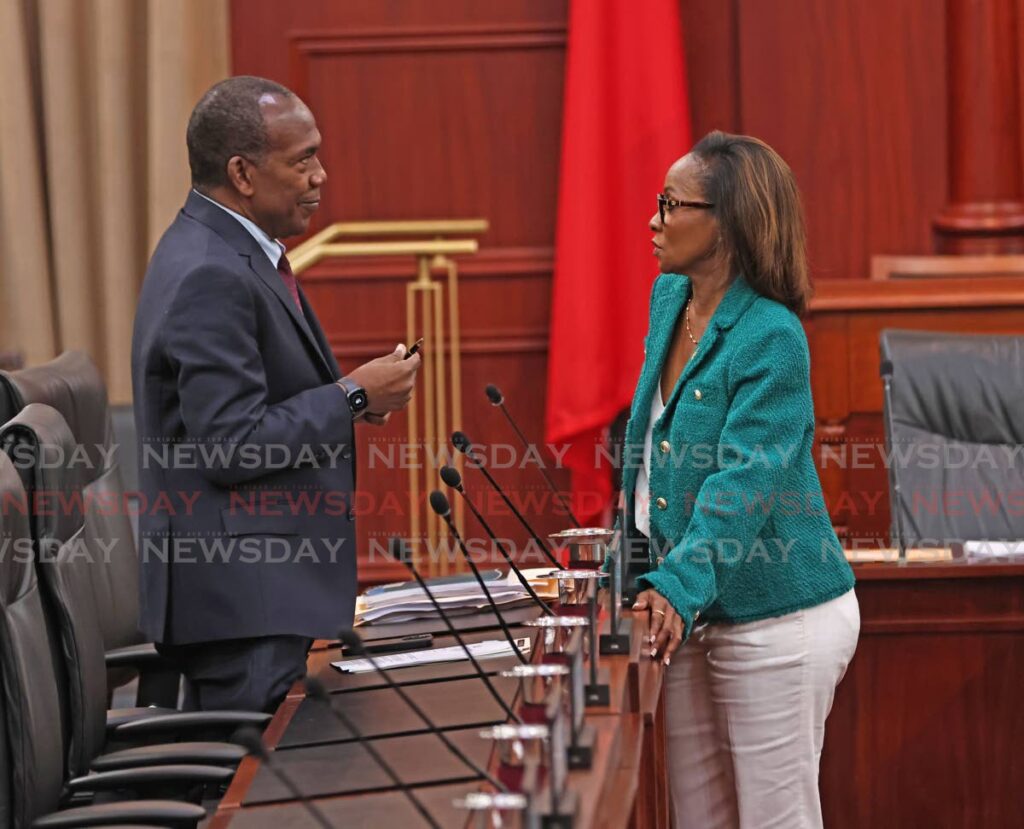By Joey Bartlett
Copyright newsday

Independent Senator Dr Marlene Attzs, in her maiden contribution in the Upper House, centred her analysis on proposed amendments to the country’s citizenship laws, particularly the economic implications and foreign exchange potential.
She welcomed the position of Minister of Sport and Youth Affairs, Phillip Watts, who framed the amendment as “not administrative housekeeping, but a strategic shift in how citizenship is defined and operationalised in the service of national development.”
Turning to the economic case, Attzs, an economist by training, focused on the potential for foreign exchange earnings, citing figures mentioned by Watts on annual remittance inflows ranging from US$100m-$329m.
“These flows could potentially double or triple, with wider diaspora contributions exceeding US$500 million.”
Speaking during the Senate’s sixth sitting on September 17, Attzs discussed the proposed phased approach: the inclusion of citizens’ grandchildren to seize opportunities like the 2026 FIFA World Cup and a broader framework for talent acquisition through citizenship targeting investment and professional skills.
Against the backdrop of persistent foreign exchange shortages, she said businesses regularly face challenges accessing forex, and if the policy succeeds in attracting new remittances and capital.
“Will these inflows be captured through formal channels, strengthening foreign reserves and the balance of payments, or will they continue leaking through informal, untracked paths?”
She called for clarity on the assumptions underpinning the government’s foreign exchange projections.
“What age profiles are being considered? Will the new citizens be economically active, or will they create additional demands on public services such as healthcare and housing?”
Attzs stressed institutional readiness must match policy ambition and warned legislating without proper modelling risks “making hope the basis for governance”.
“The promise of skilled doctors, engineers, and entrepreneurs returning must be supported by infrastructure, internship slots, credential recognition mechanisms, and labour market planning to avoid displacing locals or depressing wages.”
Attzs acknowledged the merit of the phased approach but argued it must be grounded in coherent policy. In her view, the true test is if the amendment forms part of a comprehensive, constitutionally rooted strategy to mobilise diaspora capital, skills and identity, or whether it risks becoming another piecemeal reform: “high on ambition but weak in execution.”
Attzs said existing capacity constraints raise critical questions about administrative readiness.
“Minister Watts promised rigorous biometric and biographic vetting, full background checks, and inter-agency coordination. Yet assurances do not implement themselves.”
She called for clear protocols, inter-ministerial data sharing, and proper resourcing, especially if the country is faced with a surge in applications based on lineage.
Attzs claimed the Immigration Division is already overstretched and could buckle under the weight of new demands.
“While citizenship by descent from a parent is relatively straightforward, proving descent through a grandparent introduces documentary complexity, especially from jurisdictions with weak administrative systems.”
Without adequate capacity, she said, the policy could shift from promise to public frustration. Attzs also raised equity concerns regarding the treatment of children born in TT to migrant parents, particularly Venezuelans.
“It is hypocritical to facilitate citizenship for grandchildren while denying basic services such as education and healthcare to children born in TT. If fairness is the ethos of the amendment, it must apply inward as well as outward.”
Turning to safeguards, Attzs cautioned against leaving vetting protocols to ministerial discretion.
She said other countries have codified requirements such as residency periods, foreign birth registers and DNA verification. If TT is to expand descent-based citizenship, it must adopt additional safeguards.
“A central register of lineage-based applications and clear processing timelines must be part of it.”
Attzs concluded by pointing to global migration dynamics, particularly deportations from the US. With grandchildren of citizens newly eligible under this amendment, she said arrivals could increase significantly.
“The real question is whether TT is ready. Are schools equipped? Are clinics staffed? Is the housing market prepared?”



